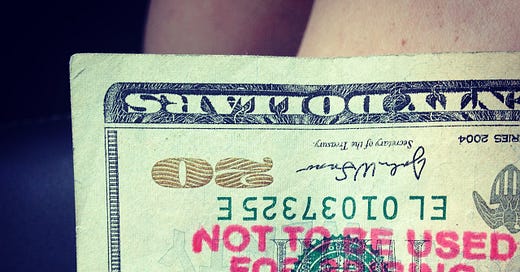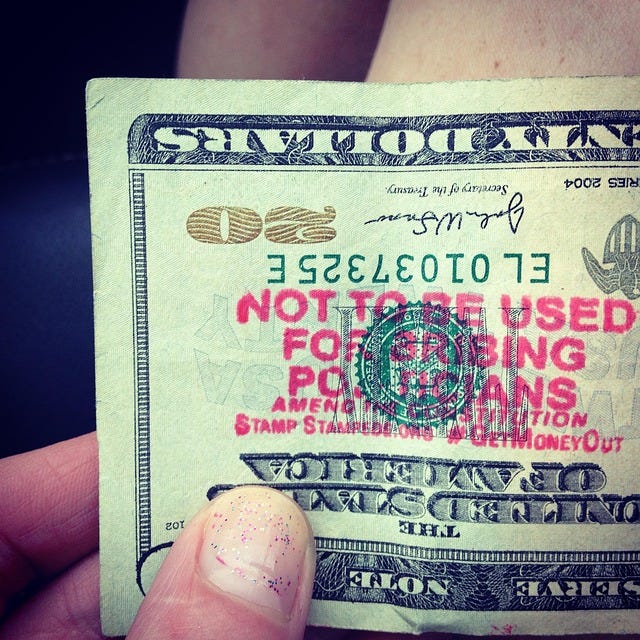The person who brought his sacrifice on the first day [of the Tabernacle dedication] was Nachshon the son of Aminadav of the tribe of Judah. His sacrifice consisted of… This was the offering of Nachshon the son of Aminadav. (Bamidbar 7:12, 7:17)
After Nachshon the son of Aminadav’s name is mentioned in verse 12, the Torah lists the various gifts that he brought during the dedication of the Mishkan, the desert Tabernacle. Rashi explains that his name is repeated at the end of the list in order to teach that these gifts were his own, rather than items he took from members of his tribe.
In this way, Nachshon embodied Yitro’s strong suggestion that leaders be people who, in Onkelos’ translation, hate receiving money. (Shemot 18:21) Rashi further explicates (citing Baba Batra 58a) that any judge who only relinquishes his money by order of the court is unfit to be a judge.1 A leader - and in the Tanach, judges and leaders are often synonymous - cannot use his position to enrich himself.
Nachshon and the other eleven princes were appointed by God (Bamidbar 1:5-16) - but that was a month after the dedication of the Mishkan. Why, then, did Nachshon and the others act like leaders, bringing gifts to the Tabernacle, before their divine appointment? The Netziv answers that God only appointed the princes after they had been selected by the people of each tribe. Nachshon and the others, then, were essentially democratically elected leaders whose appointment was later given a divine stamp of approval.
The fact that these leaders were chosen by the people clearly did not give them license to profit on the backs of the populace.
In both Israel and in the United States, we are witness to the complete inversion of this Biblical model of selfless leadership. One example of many will suffice:
Paul Walczak pleaded guilty to withholding $10 million in taxes, and was sentenced in April to 18 months in prison, two years of supervised release, and $4.4 million in fines. Walczak applied for a pardon soon after Trump’s inauguration, but he received no reply.
More recently, Walczak’s mother, Elizabeth Fago, attended a Trump fundraiser at Mar-a-Lago which cost $1 million per person.
Trump pardoned Walczak three weeks later. His mother’s million dollar donation saved him $4.4 million dollars and significant prison time.
The examples of ostensible leaders enriching themselves - in Israel and elsewhere - are legion. As followers of the Torah, we consider Nachshon the son of Aminadav to be an example of proper leadership. When we ignore or even justify the selfish and acquisitive characteristics of our preferred leaders, we are hypocrites.
I don’t believe that we need to expect our leaders to always be moral exemplars. I also don’t believe that any one negative characteristic necessarily demands rejecting a given politician altogether - particularly given the often worse alternatives. However, many of us fall into the trap of justifying or ignoring unacceptable behavior simply because a particular politician is on “our side.” We have to get into the habit of calling out improper behavior no matter whether the culprit is someone we voted for or not.
When Orthodox Jews sing the praises of Nachshon the son of Aminadav in divrei Torah around their Shabbat tables, then ignore the wealth-grabbing tendencies of their favored candidates, are they not engaging in rank hypocrisy?
If you’ve been enjoying what you read here and want to see this project grow, I’d love for you to consider becoming a paid subscriber. It’s a small way to say, “I want more of this,” and it makes a big difference. Thank you!
Tosafot note that if the judge only relinquishes money by order of the court because of a reluctance to take an oath - which represents an admirable quality - this rule does not apply.




